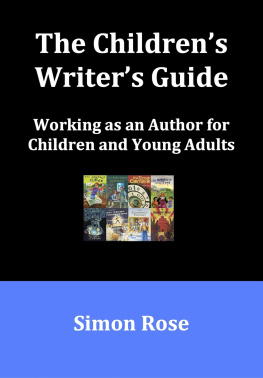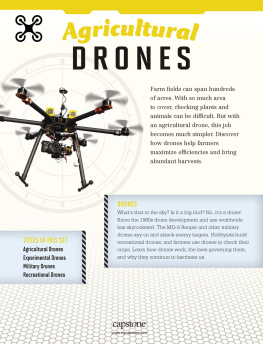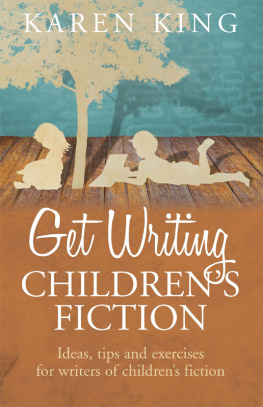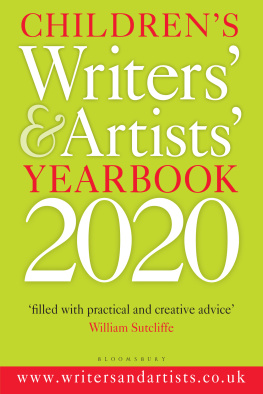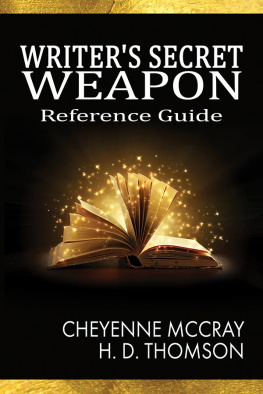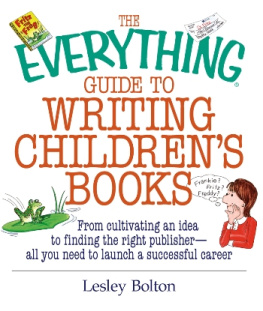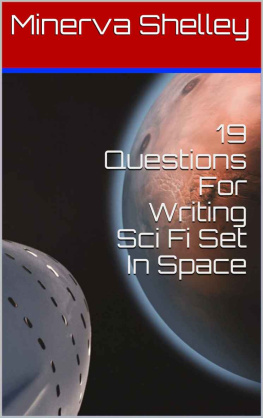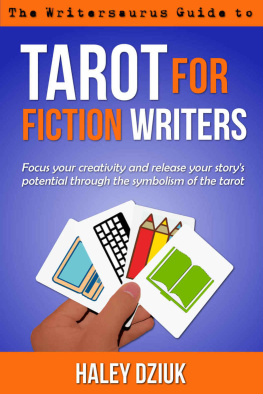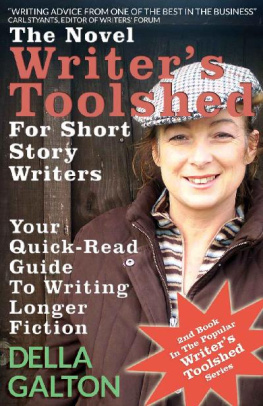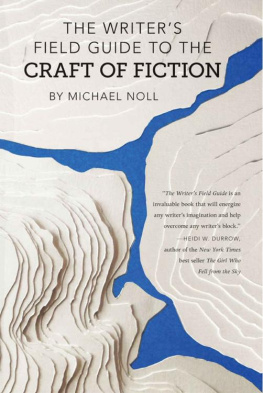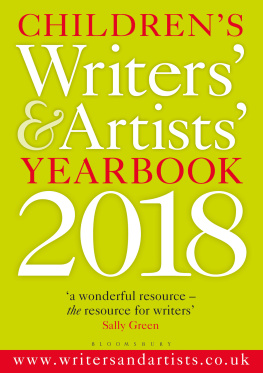The
Childrens Writers Guide
The Childrens Writers Guide
Copyright 2014 by Simon Rose
All rights reserved. No part of this publication may be reproduced, stored in a retrieval system, or transmitted in any form or by any means, electronic, mechanical, photocopying, recording, or otherwise, without written permission from the publisher, except for the use of brief quotations for the purpose of a book review. For information about permission to reproduce selections from this book, please contact Simon Rose at sorcerersletterbox@gmail.com
Published by Sorcerer's Letterbox Publishing, Calgary, Alberta
www.simon-rose.com
Editing by Ricki Ewings, Trail, British Columbia
Table of Contents
Introduction
T his book talks about getting started as a writer, creating time and space to pursue your craft and dealing with lack of motivation and writers block. It also looks at where ideas come from and how writers turn them into stories, choosing names for characters that are appropriate to the story, the importance of historical research if your novel is set in a different era, writing science fiction and fantasy and at the use of magic in stories for children. It examines the role of editing and revision and how to deal with what is often the inevitable process of rejection, at least until good fortune comes your way. I also recount some of my experiences with marketing and promotion, such as book launches and in-store signings, websites, blogs, and social media, and presentations, workshops and author-in-residence programs at schools and libraries.
Chapter One
Starting Out as a Writer
Getting Started
T here appears to be an endless number of sites on the web offering advice on writing, concerning where to get ideas, character development, point of view, working in different genres, story structure, the editing process, how to capture the attention of publishers and agents and so on. And yet one of the most frequently asked questions, especially for beginners, is How do I actually get started with my writing? It may seem like a very simple question, but if you cant get started, how can you ever make use of all these great tips that published writers, or at least very knowledgeable and prolific ones, offer all the time? Lets examine some of the ways you can kick-start your creativity, then stay motivated in your quest to get your writing career not only on track, but into the fast lane as well. And dont forget, even established writers sometimes have problems starting a particular project.
Creating the Spark
F ree writing, sometimes referred to as stream-of-consciousness writing, involves writing continuously for a set period of time. Spelling, grammar, punctuation, and even a topic are largely irrelevant. Although the process may appear to result in mostly unusable material, it can help writers get to grips with their subject matter or to overcome the dreaded writers block. If youre a regular writer, whether of stories for children, magazine articles, non-fiction pieces or something else entirely, you most likely already have a topic in mind. But you can certainly adapt the free writing method to suit your own purposes. It can be a good exercise to see if you can write a certain number of words in a day, but dont be too concerned with the quality of the ideas. Nor do you need to think too much about editing and revising at this stage, since you can do that later. When youre engaged in the exercise, the objective is to write as much as possible in the time you have allotted. You may decide to complete a certain word count completed that day or set yourself a time limit. Working against the clock may give you the incentive you need to get the job done. Writing a thousand words, for example, may seem daunting, but is very achievable. Even if you end up deleting a lot of this text afterwards, you still have the material to work on, no matter how irrelevant some of it may turn out to be. Youll have to review the material before you decide which parts to get rid of, and in the process, you might get some new ideas for the project or take it in a completely new direction as you discover that much sought after inspiration.
In the Beginning
E ven if youre determined to work on your writing and have set time aside for it, there will be days when nothing seems to work to get you started. An interesting exercise to get a story moving is to use a collection of random objects drawn from a bag. The idea is then to create a story, in which these objects must all be used as a significant part of the narrative. For example, you could place a set of keys, a hairbrush, a pen, a cellphone, an apple, a sock, a postcard from the Caribbean, a teddy bear, an address book, a broken pair of sunglasses, a Post-it note, a watch, or indeed any collection of unrelated items in a bag. You then draw out four or five at random and use them to create your story. This type of exercise always sparks the imagination of children and youd be surprised at what you come up with when confronted with a group of seemingly unconnected objects. You could even set a time limit to force yourself to devise the beginning, middle, and end of the story. The final result may not be bestseller material, but the process will stimulate your imagination and might be just enough to get your creativity moving again.
Kick-start Your Creativity
A great way to get started is to consider an overheard conversation and where it might lead. How about Ill never forgive him for as long as I live, or I didnt mean to set the laboratory on fire, it just kind of happened, or After that incident last year, her family will never be the same again? Any of these could be overheard in a supermarket, at a store checkout or on a bus or train journey. You could even find a mysterious note or a cellphone with a text message containing tantalizingly vague details from someone who may be in serious danger. Maybe you receive a letter and immediately recognize the name above the return address as belonging to someone you thought was dead. All of these are great story starters, but they can also help you develop your own idea or take you down a different path altogether.
Another idea is to set up an imaginary dinner party at your house. The guests could be celebrities, movie and TV actors, or characters from books, comics, cartoons, or movies. These could be characters you like, admire, find irritating, or even detest; its up to you. What would they have in common? What kinds of things might they talk about, agree, or argue about? You choose the guests based on the dynamics that might occur from having them all in the same place at a truly fascinating imaginary party.
No Happily Ever After
I f you dont feel as if you can create your own story from scratch, why not use someone elses? This is not an endorsement of plagiarism, but rather a suggestion to rewrite the ending to a story you are very familiar with. This could be a fairy tale, a real incident from history, a myth or legend, a movie or TV series - whatever you like. Perhaps the prince never reached the castle to bestow a kiss on Sleeping Beauty and wake her from her spellbound slumber. Maybe Goldilocks met three tigers in the jungle instead of three bears in the woods. Perhaps the slipper didnt fit Cinderella when she tried it on after all. What if Dorothy decided to stay in Oz instead of returning home to Kansas?
Alternate History
T he genre of alternate history is fascinating, imagining history unfolding in a radically different way, resulting in utterly different timelines, landmark events, and notable personalities. What if England had fallen to the Spanish Armada in 1588? Perhaps Napoleon wasnt defeated at Waterloo? What if the Confederacy had won the American Civil War? What would the world have been like if the Russian Revolution had never happened? Whatever road you decide to follow, attempting to rewrite the ending to a familiar story or present an alternative scenario could take you in all sorts of interesting directions. A radically different take on familiar characters and situations, while perhaps not marketable in themselves, will help to get your creative juices flowing and perhaps serve as inspirations for your own piece of work.

